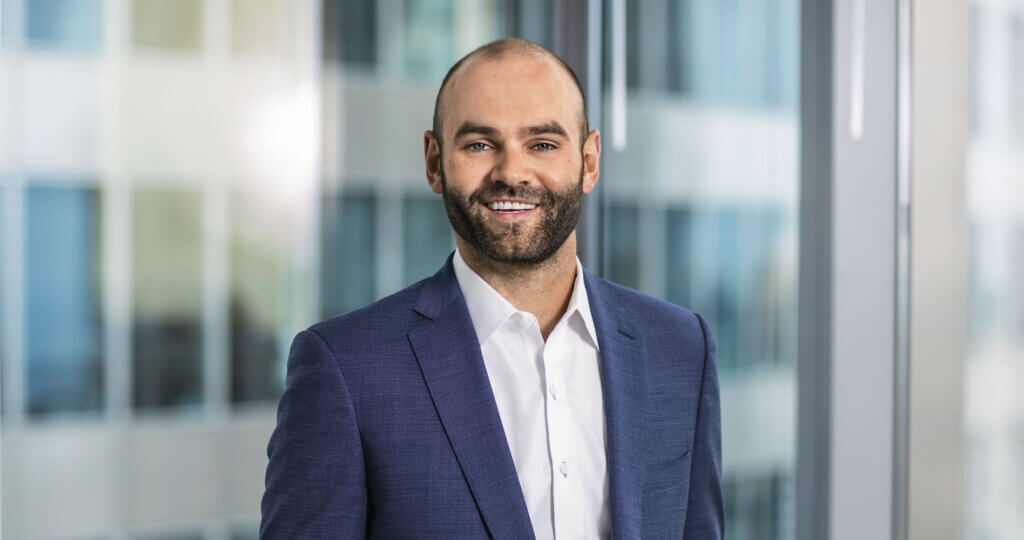Oakmark Global Fund - Investor Class
Average Annual Total Returns 03/31/2019
Since Inception 08/04/1999 9.55%
10-year 12.41%
5-year 3.42%
1-year -6.37%
3-month 12.59%
Gross Expense Ratio as of 09/30/18 was 1.21%
Net Expense Ratio as of 09/30/18 was 1.15%
Past performance is no guarantee of future results. The performance data quoted represents past performance. Current performance may be lower or higher than the performance data quoted. The investment return and principal value vary so that an investor’s shares when redeemed may be worth more or less than the original cost. To obtain the most recent month-end performance data, view it here.
From (Near) Worst to (Near) First in 90 Days
In the prior quarter’s letter, we discussed how the fundamental performance of the companies in the Global Fund was inconsistent with the decline in share prices. These sorts of opportunities don’t tend to last long, but one never knows exactly when stock prices will begin to more accurately reflect business value. With virtually no change in the headlines, political climate or underlying business fundamentals, global stocks have recovered significantly from last quarter’s decline. Over the last two quarters, we’ve seen a bottom fifth percentile return (Q4 2018) for the MSCI World Index, followed by a top tenth percentile return (Q1 2019).1Yet not much has changed fundamentally. Although such short-term, schizophrenic behavior is not unusual for stocks, it is quite difficult to predict. So we stay fully invested in stocks, focusing on quality businesses that sell for significant discounts to intrinsic value and are run by capable managers. Bill Nygren’s letter explains the benefits of owning equities for decades (not quarters) and how maintaining an asset allocation profile that fits one’s risk tolerance and rebalancing in a disciplined way greatly increases one’s odds for success. We manage your global equity portfolio similarly. However, instead of rebalancing between different asset classes, we rebalance into the companies that present the best risk-adjusted values and we rebalance out of the companies where that valuation is less attractive, all while staying fully invested with the goal of maximizing long-term, after-tax returns.
Performance Discussion
The Global Fund gained 12.6% in the first calendar quarter of 2019, which roughly matched the MSCI World Index gain of 12.5%. Since inception, the Fund has returned 9.6% annually, compared to 4.7% for the MSCI World Index.
For the quarter, our holdings in the U.K., U.S. and South Africa contributed the most to returns, while Mexico and Australia detracted the most. Individually, Mastercard (U.S.), Lloyds Banking Group (U.K.) and Travis Perkins (U.K.) were the largest contributors to performance. After our in-depth discussion of Lloyds in last quarter’s letter, we were gratified but not surprised that it was a significant contributor this quarter. The largest detractors were Bayer (Germany), Grupo Televisa (Mexico) and Incitec Pivot (Australia). While we are disappointed with the recent legal judgements related to the herbicide Roundup, Bayer’s share price fell well in excess of our estimated liability, and given that the company had already been trading at an attractive price, we added to our Bayer holdings during the quarter.
Portfolio Activity
We initiated one new position in the quarter, Booking Holdings (U.S.), and sold Multichoice Group (South Africa), which was spun out of Naspers, to pursue more attractive opportunities.
Booking Holdings (formerly known as Priceline) is a pioneer and global leader in the online travel industry. The company’s strong brands, significant investment expenditures and scale advantages have given it a formidable network effect. Add to that the company’s geographic exposures, revenue mix and superior online traffic conversion, and it is clear that Booking has one of the best operating models in the industry. Yet the share price fell after the company issued weaker than expected quarterly guidance due to rising macroeconomic pressures in Europe and the company’s increased investment expenditures. Booking has been investing heavily in alternative accommodations, payments, business travel and other ancillary businesses, and we believe this approach will further enhance the company’s competitive position and allow it to exceed market growth rates over the long term. The company’s highly regarded management team also has a long history of growing per share business value. We expect Booking to repurchase nearly 10% of its total share base over the two-year period, ending at the close of 2019, and that it will grow earnings at above-average rates while maintaining its pristine balance sheet. On our one-year forward estimate, Booking trades at a discount to the market’s P/E ratio (excluding its net cash and investments), despite a superior growth outlook and well above-average return profile, which should earn it a premium valuation.
Currency Hedges
We defensively hedge a portion of the Fund’s exposure to currencies that we believe to be overvalued versus the U.S. dollar. As of quarter end, we found only the Swiss franc to be overvalued and have hedged approximately 18% of the Fund’s franc exposure.
Thank you for being our partners in the Oakmark Global Fund. Please feel free to contact us with your questions or comments.
1Percentile ranking of Q4 2018 and Q1 2019 MSCI World Index returns compared to MSCI World Index quarterly historical returns since 1970.
The securities mentioned above comprise the following percentages of the Oakmark Global Fund’s total net assets as of 03/31/19: Bayer 3.7%, Booking Holdings 0.7%, Grupo Televisa ADR 1.6%, Incitec Pivot 1.9%, Lloyds Banking Group 3.7%, Mastercard Cl A 4.8%, Multichoice Group 0%, Naspers 2.7% and Travis Perkins 2.5%. Portfolio holdings are subject to change without notice and are not intended as recommendations of individual stocks.
Access the full list of holdings for the Oakmark Global Fund as of the most recent quarter-end.
The net expense ratio reflects a contractual advisory fee waiver agreement through January 27, 2020.
The MSCI World Index (Net) is a free float-adjusted, market capitalization-weighted index that is designed to measure the global equity market performance of developed markets. The index covers approximately 85% of the free float-adjusted market capitalization in each country. This benchmark calculates reinvested dividends net of withholding taxes. This index is unmanaged and investors cannot invest directly in this index.
The Fund’s portfolio tends to be invested in a relatively small number of stocks. As a result, the appreciation or depreciation of any one security held by the Fund will have a greater impact on the Fund’s net asset value than it would if the Fund invested in a larger number of securities. Although that strategy has the potential to generate attractive returns over time, it also increases the Fund’s volatility.
The percentages of hedge exposure of each foreign currency are calculated by dividing the market value of all same-currency forward contracts by the market value of the underlying equity exposure to that currency.
Investing in foreign securities presents risks that in some ways may be greater than in U.S. investments. Those risks include: currency fluctuation; different regulation, accounting standards, trading practices and levels of available information; generally higher transaction costs; and political risks.
The discussion of the Fund’s investments and investment strategy (including current investment themes, the portfolio managers’ research and investment process, and portfolio characteristics) represents the Fund’s investments and the views of the portfolio managers and Harris Associates L.P., the Fund’s investment adviser, at the time of this letter, and are subject to change without notice.
All information provided is as of 03/31/2019 unless otherwise specified.







